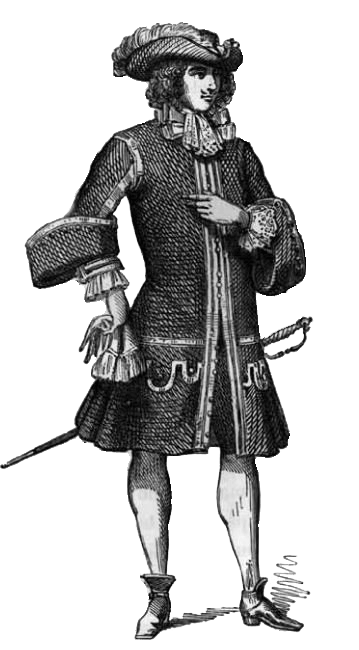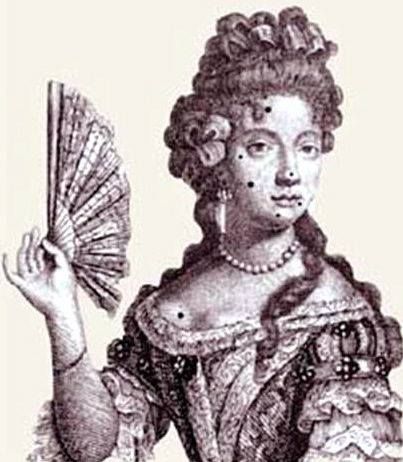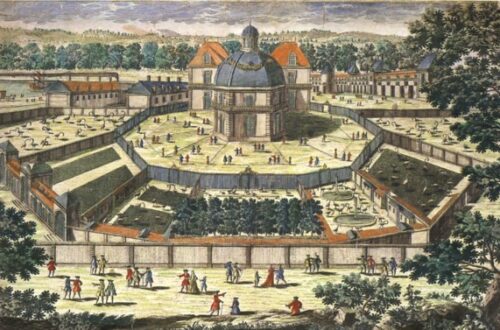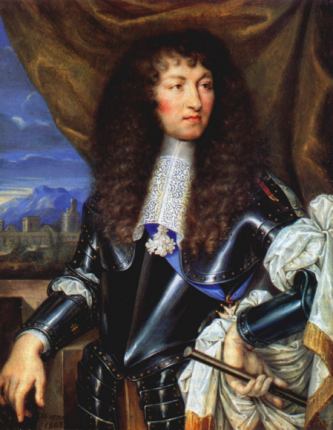Révolte des Lustucru
Louis XIV had to face his first revolt after the Fronde in 1662, one year after he took the reins of government into his own hands.
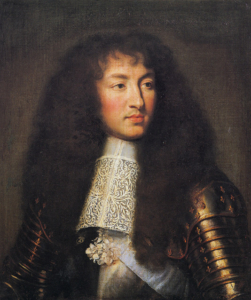
The county of Boulonnais was of a strategic importance due to its closeness to the Spanish Netherlands. The people there suffered a lot during the war with Spain, that already raged since 1635, and like many places bordering foreign lands, they had their own militia that assisted to guard the frontiers. The latter granted them certain privileges, like not having to pay taxes. But, due to their closeness to the border, they regularly had to host the French troops and provide winter quarter for them… soldiers do not always behave well and that greatly annoyed the people of Boulonnais. To avoid further annoyance, the people decided to send someone to the King in order to offer 40000 livres if they were to be spared serving as winter quarter. France and Spain made peace in 1659 and no winter quarters had to be assigned anymore… but now the Crown demanded Boulonnais to pay 30000 livres as an extraordinary contribution.
That was even more of an annoyance. The people thought with the war being over, they would be spared to pay. After all, the new border was now a good 20 kilometres away and France just had bought Dunkirk back from the English. There was nothing to justify this new extraordinary contribution. Thus the people of Boulonnais sent someone to Paris once more. This time to protest, but alas, their protest was met by deaf ears and they had to return home with nothing being achieved.
As the news of the Crown still demanding the sum to be paid as an extraordinary tax, nobles and clergy did not have to pay taxes, reached the poor people they were not happy at all. They teamed up, lead by petty nobleman named Bertrand Postel, and armed themselves as best as they could.
Towards the end of June, peasants from several districts rose up and attacked the house of Monsieur Blaizek, who was at dinner with a group of officers. All of them had to flee the house. Only a couple of days later, more peasants attacked a group of 250 horsemen sent from Picardy. At the town of Marquise, 200 men stormed the house of a Monsieur Jacques Courtois and looted it, afterwards they moved to loot the cellar of the priest Leboef. The revolt grew by the day and its members had to be fed, thus they forced monks of local abbeys to provide them with food and drink, while they merrily attacked whatever seemed worthy.
The local authorities were utterly surprised by the uprising and violence and so was the Crown. The response of the latter was swift and ruthless. The Duc d’Elbeuf was put in charge of quenching the revolt and rode out with plenty of armed forced at hand. Getting them to the needed places was no hassle at all, for a lot of royal troops were still stationed in nearby border areas. Monsieur d’Elbeuf rounded thousands of rebels up and forced them to barricade themselves in the chateau de Hucqueliers. The Capuchin monk Don Ducrocq claims that a pardon was promised to all those who would lay down their arms and the people did so in good faith, but no pardon was granted to them.
According to the Gazette de France, the King intended to have them punished in a harsh manner. Thus Colbert ensured foreign judges to be employed, because the local ones might show too much mercy. 1200 rebels were put on trial, of which 400 were sentenced to serve on the galleys for the rest of their lives. Two rebels ended their lives on the wheel, one of them being Monsieur Postel.
On top of it, according to a letter by Colbert, the King also considered to take the tax privileges of the region away. Eight blank lettres de cachet were sent to Boulogne as well. The town had nothing to do with the rebellion, but the Crown ordered that these eight letters were to be used to exile eight people. Marshal d’Aumont, the military commander of the region, was ordered to pick eight people of whom he thought they had encouraged the rebellion. (Talk had it that the Spanish also did some encouraging.)
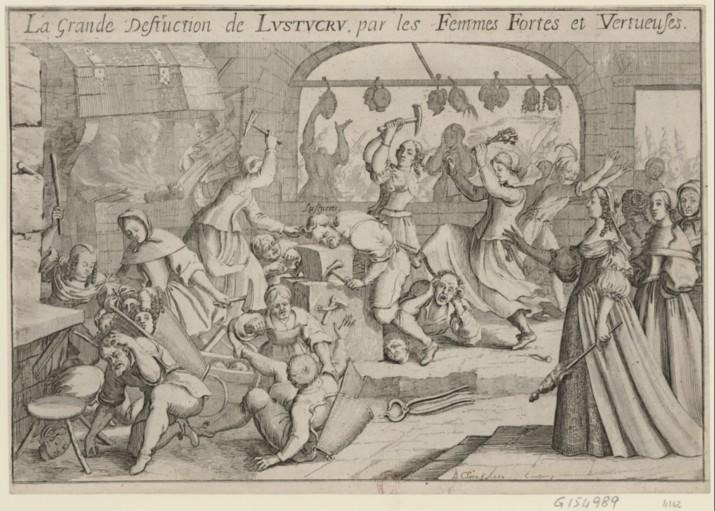
Which led to Boulogne trying to make an arrangement with the King, who happened to pass through the town in his way to Dunkirk. They asked for the freedom of the eight exiled people, the return of the region’s tax privileges, the suspension of the extraordinary payment and a pardon for all those sentenced to serve on the galleys.
Louis XIV allowed the eight people to return, pardoned a few sentenced to the galleys, reinstalled the tax privileges, but insisted on the extraordinary payment… because he could, as he said himself memoirs: “The Boulonnais have for a long time considered themselves exempt from contribution in any fashion to the taille. I wanted to impose on them a very small sum, solely to make them know that I have the power and the right to do so. At first, this produced a bad effect, but the use that I made of (the opportunity), albeit with pain and difficulty, has had a good outcome (with respect to) the future. The people, frightened by something that appeared new to them, or secretly incited by the nobility, rose up against my orders. The consideration and compassion of those to whom I confined the execution of (the edict) being mistaken for timidity or for weakness…. augmented the revolt instead of appeasing it. Six thousand rebels assembled in various areas. Their fury could not be calmed. I sent troops to punish them. They dispersed for the most part (and) I pardoned those whose retreat demonstrated (their) remorse. Some, more obstinate in their error, were taken arms in hand and delivered to justice. Their crime merited death (but) I saw to it that most of them were only sentenced to the galleys. I would have spared them even this punishment if I had not thought (that) in this circumstance I should follow my reason rather than my inclination.”
 This revolt became known as the Révolte des Lustucru. This Lustucru was a figure dating back to the Renaissance, a sort of evil blacksmith, that wanted to reforge the heads of ugly and rebellious women. The women took revenge by putting him to death. This smith was called L’eusses-tu-cru, which was turned into Lustucru, and became a bogeyman figure for children and women. According to some, Lustucru was in this case the nickname of the rebels, others say it was a reference to Louis XIV putting people on the galleys without proper trial.
This revolt became known as the Révolte des Lustucru. This Lustucru was a figure dating back to the Renaissance, a sort of evil blacksmith, that wanted to reforge the heads of ugly and rebellious women. The women took revenge by putting him to death. This smith was called L’eusses-tu-cru, which was turned into Lustucru, and became a bogeyman figure for children and women. According to some, Lustucru was in this case the nickname of the rebels, others say it was a reference to Louis XIV putting people on the galleys without proper trial.
